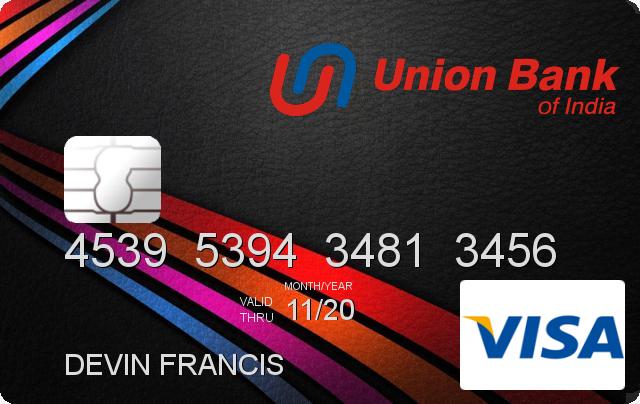Credit card fraud is currently the most pervasive form of identity theft, with 14.2 million credit card numbers being exposed in 2017, according to the Identity Theft Resource Center.
- Mar 25, 2020 Tupperware Website Hacked to Steal Credit Card Numbers. According to Malwarebytes, the credit card skimmer on Tupperware.com has been active for days now—until the antivirus company published.
- Hack credit card VISA data leaked expiration 2020,Free 2020 credit card information with unlimited money.Valid Credit Card that Works with. Credit card hacker 100 fresh numbers 2020 with zip code Free and Fresh Credit card hacker 100 fresh numbers 2020 with zip code expiration 2020, today we provide credit cards from various card issu.
- Credit Card Hack free download - Easy Credit Card Checker, Password Protector, Home Budget, and many more programs.
Fill Visa Card Hack 2020, Edit online. Sign, fax and printable from PC, iPad, tablet or mobile with pdfFiller Instantly. Fill Visa Card Hack 2020, Edit online. Sign, fax and printable from PC, iPad, tablet or mobile with pdfFiller Instantly.
Yet a separate study reveals that too many Americans are careless when it comes to protecting their personal data, which only invites more fraud. Read more here about credit card fraud.
According to the Pew Research Center, 41% of Americans reported a fraudulent charge on their credit card, yet only 12% use password management software and 41% say they've shared a password online with a friend or family member.
Password carelessness is only one way that fraudsters can hack into a user's online account and steal their credit card data. Cardholders should know that identity thieves have myriad paths to their card data and take active steps to block those paths, once and for all.
Best Visa Cards 2020
Data security experts say one way to thwart credit card hackers, or at least minimize the damage, is to know the signs that your card has been hacked in the first place.
That knowledge not only allows you to alert your credit card company and law enforcement, it also teaches you a long-term lesson in how card data thieves operate, enabling you to better plug data vulnerability gaps with your credit card.
Here are the biggest 'red flags' that alert you to credit card data theft, security experts say:
1. You Notice Strange Purchases

The single biggest red flag when it comes to credit card fraud is finding unknown purchases on your bank account statement, says Doug Brennan, a cybersecurity expert and blog manager at Digital Addicts. 'Because this type of fraud can happen at any time, it's important to remain vigilant, and check your bank account statements on a regular basis,' Brennan says.
Was Visa Hacked
2. You Notice Small Charges on Your Account
The moment a data thief gets access to a stolen card, they will make small charges that won't trigger any red flags, says Robert Siciliano, a security analyst at IDTheftSecurity.com, in Boston, Mass. 'That could include a few dollar charges at a convenience store. If the card works, the thief will move into incrementally larger charges as quickly as possible.'
Hacked Visa Cards 2020 Images
The most effective way to catch fraud in real time is to sign up for alerts and notifications of all your charges via text and email,' Siciliano advises. 'Otherwise, if you're not paying micro attention to your charges in real time it is likely by the end of the month you will have ended up paying for the lifestyle of an identity thief,' he notes.
Learn more about reducing the risk of identity theft here.
3. You Have Unfamiliar Company Names on Your Statement
Hacked Visa Cards 2020 Free
When you make a payment on your credit card, the name of the business' parent company will actually appear on your credit card statement, notes Jennifer McDermott, consumer advocate for Finder.com, a credit card comparison website in New York City.
'Often when processing a credit card purchase, companies will flag what you can expect to see on your account,' McDermott says. 'If unfamiliar names appear on your statement, notify your credit card company as soon as possible to dispute the charges.' You can also Google unfamiliar names you see to make sure a name isn't something you did charge before calling to report fraud.
4. You See Payments in Other Locations
Since you likely reside in a certain area, it makes sense that payments appearing on your card will be in the same location unless it's a payment to a business that is registered elsewhere, McDermott notes. 'Double check every single purchase appearing in another destination when you haven't been there, as it can denote a fraudulent transaction,' she advises.
5. A Lower Available Credit Balance
A big red flag to most consumers should be the appearance of a diminished credit line from unexplained pending charges. 'If your credit line is $5,500 and you suddenly see that only $3,500 is available, you may want to investigate further to understand what triggered the change in your available credit line,' says John Buzzard, an industry fraud specialist for CO-OP Financial Services, a provider of payments and financial technology to credit unions.
Many card issuers today provide valuable information to their cardholders by way of online banking and account activity alerts to aid in the detection of questionable transactions, Buzzard says. 'It can often take a few days for transactions to settle to the actual account, so heightened awareness on credit limits, balances, and pending transactions are always a great idea to stay one step ahead of fraudsters,' he adds.
Buzzard makes a good point. Recognize the warning signs of credit card fraud is one thing, but taking the necessary steps to stay ahead of fraud activity is even better.
Find a healthy balance between the two, and keep your plastic better protected in the future.